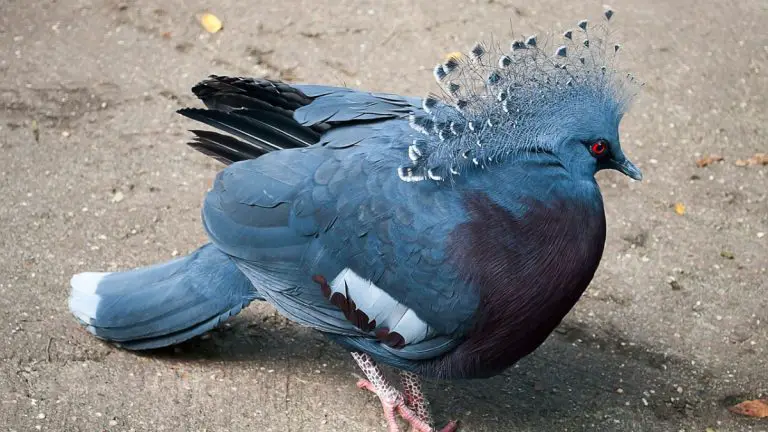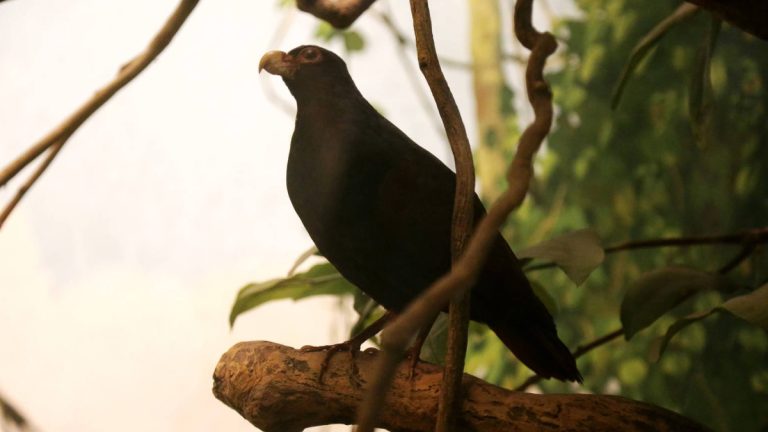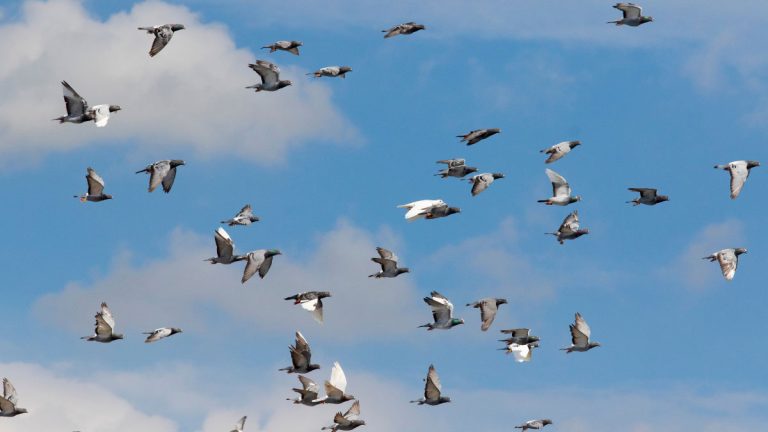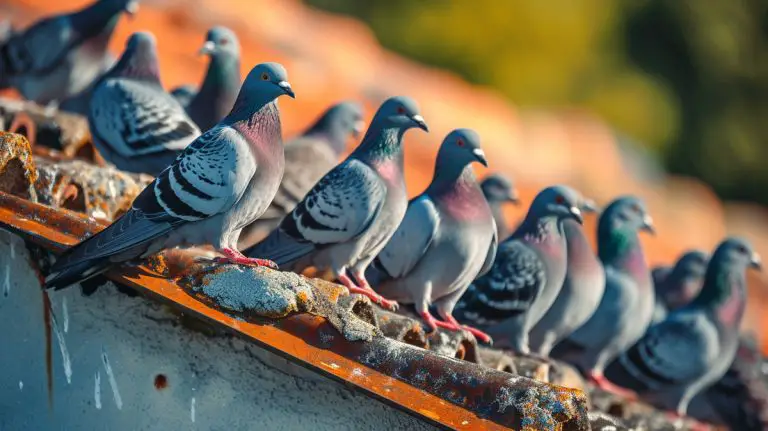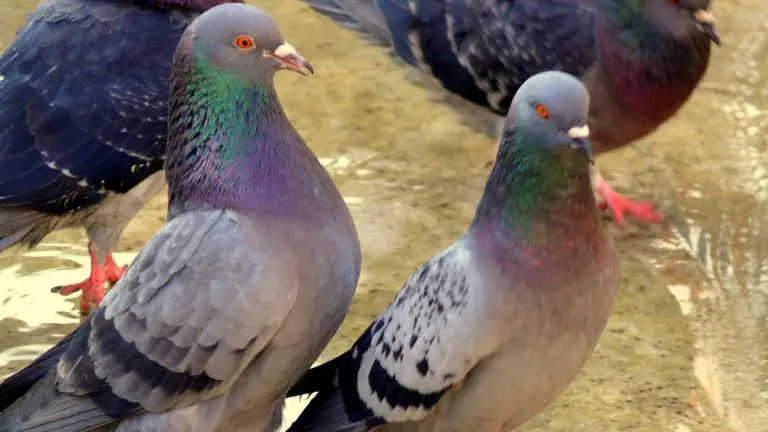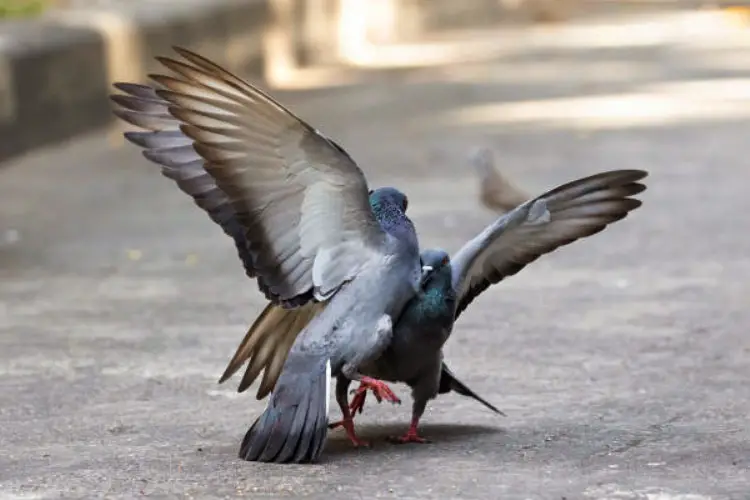Why Do Pigeons Kill Their Babies? The Surprising Truth Behind It
Pigeons are frequently seen as charming and harmless. But, sometimes, it is seen that parent pigeons kill their babies, which is hurtful.
But why do pigeons kill their babies? Factors such as overcrowding, predator presence, resource competition, stress, genetics, disease, and inexperienced or ineffective parenting can drive infanticide in pigeons.
Continue reading to learn more about the underlying causes of infanticide in pigeons and various strategies to prevent this behavior. This will allow you to work for the well-being of these birds and maintain a healthy balance in their numbers.
Why Do Pigeons Kill Their Babies?
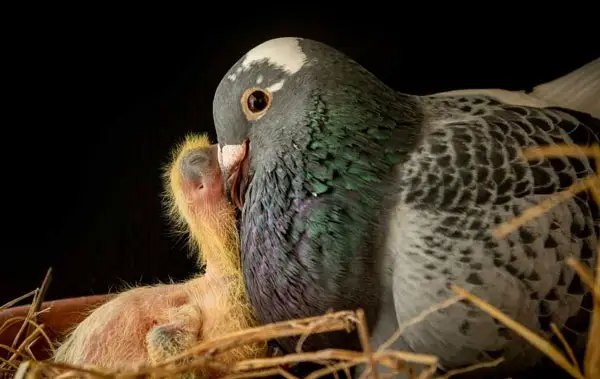
Here are some of the reasons why pigeons kill their babies.
1. Overcrowding
One of the most common reasons for infanticide in pigeons is overcrowding. Pigeons are highly territorial creatures that fiercely defend their area against other pigeons.
Pigeons may kill their babies to keep control of their territory if their region becomes congested. This is especially true for pigeons reproducing in urban locations with a large pigeon density.
2. Predator Presence
Pigeons might kill their babies when they feel threatened by predators; this behavior is called “predator-induced infanticide.”
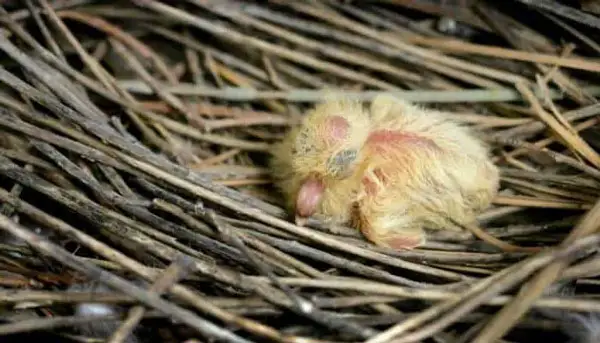
It is an adaptive strategy to avoid attracting the predator to their nest. This behavior has been observed in various bird species, not just pigeons.
The parents will murder the infants more likely to be discovered by predators, such as the weak or sickly ones. This mostly happens when a baby pigeon falls out of its nest.
3. Resource Competition
Another factor for pigeon infanticide is resource competition. Pigeons require food, water, and a place to nest to survive and reproduce. They may kill their babies to conserve resources for themselves when resources become scarce.
This is especially true for pigeons nesting in locations with a high human population, as the pigeons may have to compete for resources with humans.
4. Being Killed By A New Mate
Sometimes, a new mate may kill the previous mate’s babies. This is known as “siblicide” and occurs in various bird species, including pigeons. If the new mate is not genetically related to the chicks and thus has no stake in their survival, the chicks may be perceived as a threat to the survival of their offspring.
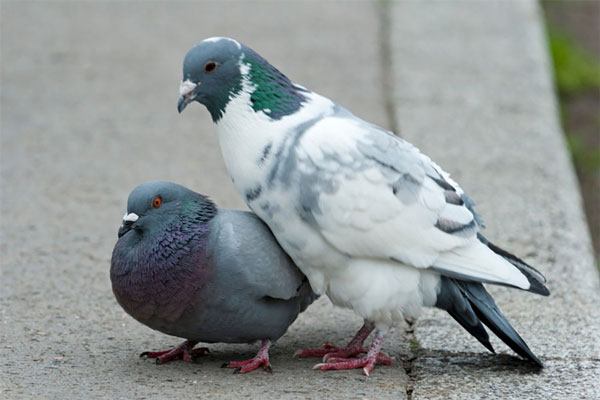
There are several possibilities as to why siblicide occurs:
- Because the new mate may have limited resources and may only nurture its children, it perceives the previous mate’s offspring as competition.
- The new mate may not have enough time to rear its own young before the previous mate’s offspring fledge (leave the nest), reducing their offspring’s success percentage.
- Because the new mate is not genetically connected to the prior mate’s kids, they lack the same motivation to spend resources on their survival.
It’s also worth mentioning that this behavior isn’t confined to new mates; it can also be seen when the parents decide to breed again.
However, this behavior is not considered maladaptive but a survival strategy in reaction to environmental conditions and resource availability. Pigeons have a high reproductive rate. Thus, they must make sacrifices to ensure their survival and their children’s survival.
5. Stress
Pigeons under stress, such as those exposed to high noise or pollution levels, may be more likely to engage in infanticide. Stress can have a negative impact on pigeon health and behavior by affecting the levels of stress-related hormones such as corticosterone.
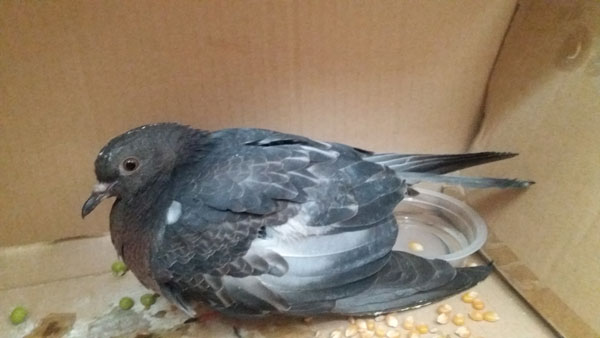
When pigeons are subjected to persistent stress, their capacity to care for their young can deteriorate, making them more prone to commit infanticide. Stress can also damage the birds’ immune systems. Thus, it makes them more prone to sickness and aggravates infanticidal tendencies.
6. Genetics
Pigeons may also engage in infanticide due to genetics. Infanticide in pigeons has a hereditary component, according to research. Some pigeons are simply more likely than others to kill their babies.
7. Disease
Pigeons suffering from sickness may be more likely to commit infanticide. The disease can weaken birds and impair their ability to care for their young. It can also impair their ability to make milk for the baby, preventing them from feeding them.
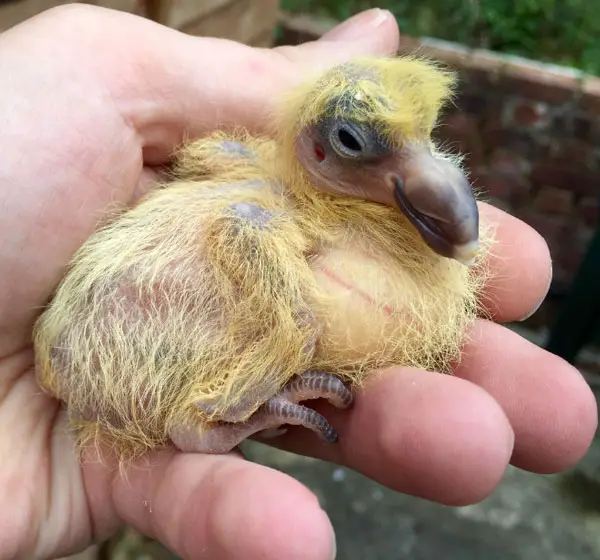
Some infections, such as avian pox and parasites, can create physical abnormalities in newborns. This renders them unappealing to parents, and the pigeons either throw them out of the nest or kill them.
8. Inexperienced Or Ineffective Parenting
Pigeons with inexperience or poor parenting skills may be more inclined to kill their babies. These birds may lack the abilities or expertise to appropriately care for their young, leaving them more vulnerable to infanticide.
This might happen when the parents are inexperienced or have never bred before. Inexperienced parents may not know how to care for their children or may be unable to provide for them. For example, sometimes, a parent pigeon may accidentally crush its chicks while trying to build or maintain the nest.
It’s important to note that these behaviors can happen in different combinations and are not mutually exclusive. In some circumstances, determining the reason for infanticide in pigeons can be difficult, as it may result from a combination of factors.
Pigeons’ Specific Behaviors and Actions When Committing Infanticide
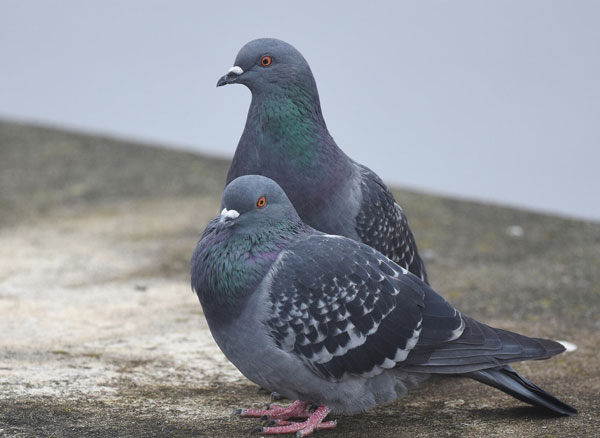
When pigeons commit infanticide, they exhibit unique behaviors and acts that can aid in identifying the crime. These are some of the behaviors:
- Picking up and dropping eggs or chicks: Pigeons may pick up eggs or chicks from the nest and dump them or throw them away
- Pushing chicks out of the nest: Pigeons may toss eggs or chicks out of their nests and abandon them on the ground
- Suffocating chicks: Pigeons may smother chicks by covering them with nesting material or their bodies
- Pecking or biting their offspring: Pigeons can peck or bite at chicks and kill them
- Abandoning eggs or chicks: Pigeons may abandon eggs or chicks and leave them to die without care
It is crucial to recognize that these actions are not limited to infanticide and can occur for various causes, including illness or injury.
Ways To Prevent Pigeons From Killing Their Babies
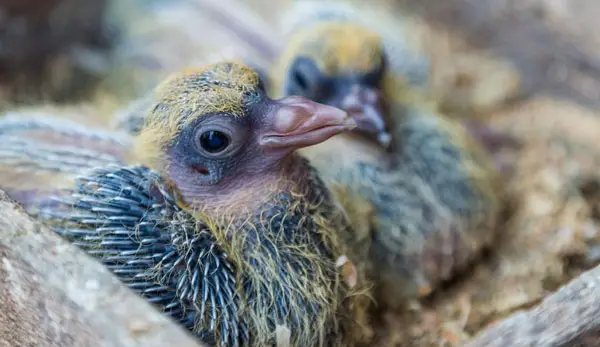
While it may be distressing to witness, there are ways to prevent infanticide in pigeons.
1. Provide Adequate Resources
Providing appropriate resources is one of the most effective strategies to prevent infanticide. This includes providing pigeons with food, water, and nesting locations.
Pigeons will be less likely to harm their progeny to conserve resources if these supplies are provided.
2. Reduce Overcrowding
Reduced overcrowding is another strategy to prevent infanticide in pigeons. You can accomplish this by limiting the number of pigeons allowed to breed in a specific location.
When the number of pigeons in an area is reduced, they are less likely to participate in infanticide to maintain control over their region.
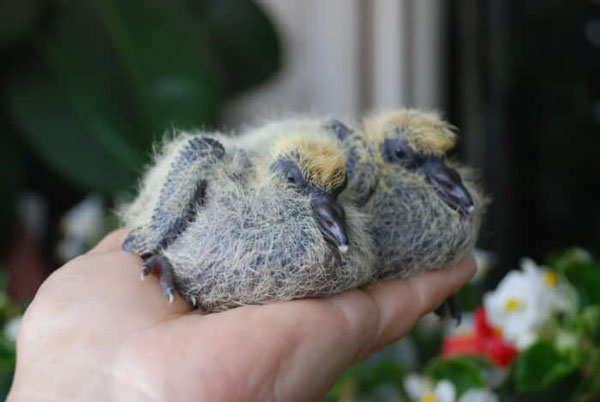
3. Egg Addling
Another method of avoiding infanticide is to addle eggs before they hatch. This entails killing or removing the eggs from the nest before hatching. This can be accomplished in various ways, including oiling, puncturing, or extracting eggs.
This approach has the potential to help reduce population and eliminate infanticide. But skilled professionals must carry it out in line with local laws and regulations.
4. Habitat Modification
Infanticide can be avoided by habitat alteration. This can include providing artificial nesting locations, like nesting boxes or ledges. Thus, it will lessen competition for natural nesting sites and territorial behavior.
It may also entail the removal of prospective nesting locations, such as ledges or eaves, to deter pigeons from breeding in specific regions.
If you’re interested in learning more about pigeon breeding and predation, you might find our articles on why do pigeons break their eggs and do crows kill pigeons helpful. Our article on why do pigeons break their eggs explores the reasons behind this common phenomenon during the breeding season. On the other hand, our article on do crows kill pigeons sheds light on the predatory behavior of crows towards pigeons. Check them out to learn more about pigeon breeding and predation.FAQs
Here are a few more related questions in relation to why pigeons kill their babies
No. That is not correct. Some fear that touching the young pigeon will cause his parents to forsake him, and pigeons will not try to kill their babies for this. It is nothing more than a myth.
Hormones and hormonal abnormalities have been linked to pigeon infanticide. Hormones related to stress response, such as corticosterone, can be influenced by environmental factors such as overcrowding and resource competition.
Disease can also induce hormonal abnormalities, which might increase infanticidal behavior.
Long-term repercussions of infanticide on pigeon behavior and breeding patterns may include population declines and changes in breeding behavior. Infanticide can also impact the social structure of pigeon populations, leading to greater hostility and resource struggle.
In the long run, infanticide might cause genetic alterations in the population. That is because infanticide birds may pass on their features to future generations.
Conclusion
Infanticide is a prevalent behavior in pigeons induced by several circumstances. That includes overcrowding, resource rivalry, stress, sickness, poor parenting skills, and predator presence.
So, it’s crucial to note that infanticide can be complex. And it may require diverse techniques to decrease or prevent it effectively.
Understanding the reasons to the question why do pigeons kill their babies will allow you to work toward safeguarding the well-being of these birds and a healthy balance in their populations.

